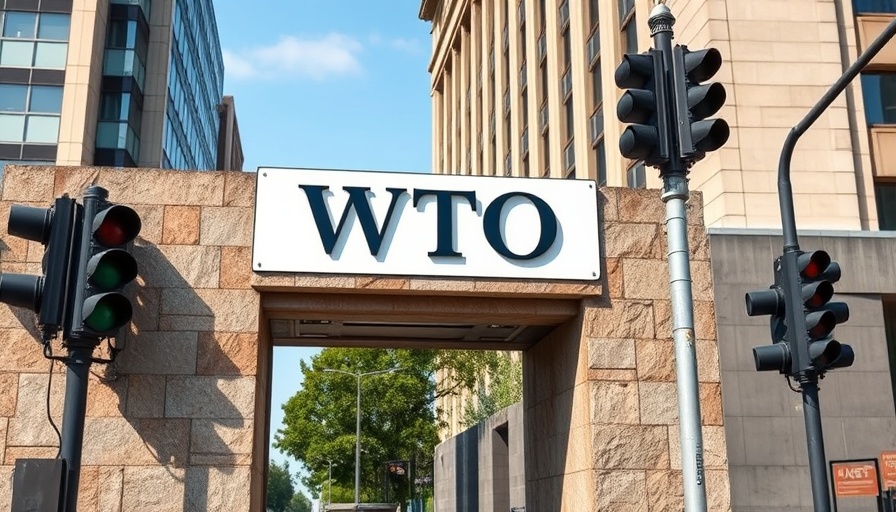
Understanding the Urgency for WTO Reform Amid Tariff Crisis
The World Trade Organization (WTO) finds itself at a pivotal crossroads as the world grapples with a rising tide of tariff disputes. With trade tensions escalating globally, now is the perfect moment to initiate reform within the WTO. As countries like the United States and China continue to implement tariffs, the existing framework of the WTO is becoming increasingly strained. This warrants not only a conversation but urgent action aimed at modernizing its structures to address current global economic realities.
Historical Context: The WTO's Role in Global Trade
Established in 1995, the WTO was designed to create a governing body for trade relations between nations, facilitating smoother transactions and guidelines for dispute resolution. Originally, it was a mechanism intended to reduce tariffs and provide a platform for countries to negotiate trade agreements. However, as the global marketplace has evolved, the WTO has been perceived as insufficiently responsive to the complexities of modern economic interaction. This historical backdrop is essential for understanding why reforms are mandatory.
The Impact of Tariffs on Modern Economies
The imposition of tariffs disrupts not only trade but also directly affects economies across the board. Increased costs of imported goods diminish consumer purchasing power, while businesses face obstacles in sourcing materials and allocating resources effectively. Local Bay Area businesses, for example, feel the squeeze as tariffs affect their supply chains and profitability. The Silicon Valley startup ecosystem—which relies heavily on innovative technologies and international partnerships—stands to be significantly impacted without necessary reforms in trade regulations.
Future Predicaments: Opportunities for Growth Through Reform
Prescriptive reforms within the WTO could present invaluable opportunities for enhanced global cooperation. A modernized WTO could incorporate more flexible guidelines specifically tailored to address the unique needs of emerging economies and innovative tech businesses. Policies focused on sustainability, digital transformation, and venture capital funding must be emphasized to keep pace with the rapid evolution of global markets. Such an approach could help bridge the gap between established systems and the need for innovative practices within trade agreements.
Counterarguments: The Case Against Reform
Not everyone views reform as the necessary path forward. Some critics argue that the WTO's existing structure, despite its flaws, provides sufficient governance to prevent trade wars. They caution that reform could invite chaos, diluting principles of fair trade. Yet, without reform, the organization's efficacy diminishes, leaving nations to operate in a trade environment characterized by unilateral action rather than cooperative efforts.
Balancing Local and Global Perspectives
For those entrenched in the Bay Area economy, the stakes in WTO reform are personal. Local businesses must adapt to global shifts while balancing community interests. As trade regulations evolve, so too must the conversation extend beyond investors and corporations to include small business owners and diverse entrepreneurs who represent the fabric of local economies. This balance is fundamental for ensuring that reforms do not exclude key stakeholders.
What You Can Do: Stay Informed and Engaged
Business leaders and concerned citizens alike should remain informed about developments in global trade regulations. Engage with local business groups and participate in discussions about the potential impacts of WTO reforms on the Bay Area, including those related to commercial real estate or local employment trends. Proactive involvement can not only empower individuals but also shape the conversation as reforms unfold in the coming years.
In conclusion, the current tariff crisis offers the WTO an opportune moment to reassess and reform its structures, ensuring they align with 21st-century economic realities. The overarching goal should be to foster international cooperation that supports sustainable business practices while promoting the robust growth of local economies like those in the Bay Area. Keeping a pulse on developments and advocating for policies that reflect the realities of today's market is imperative.
 Add Row
Add Row  Add
Add 



Write A Comment